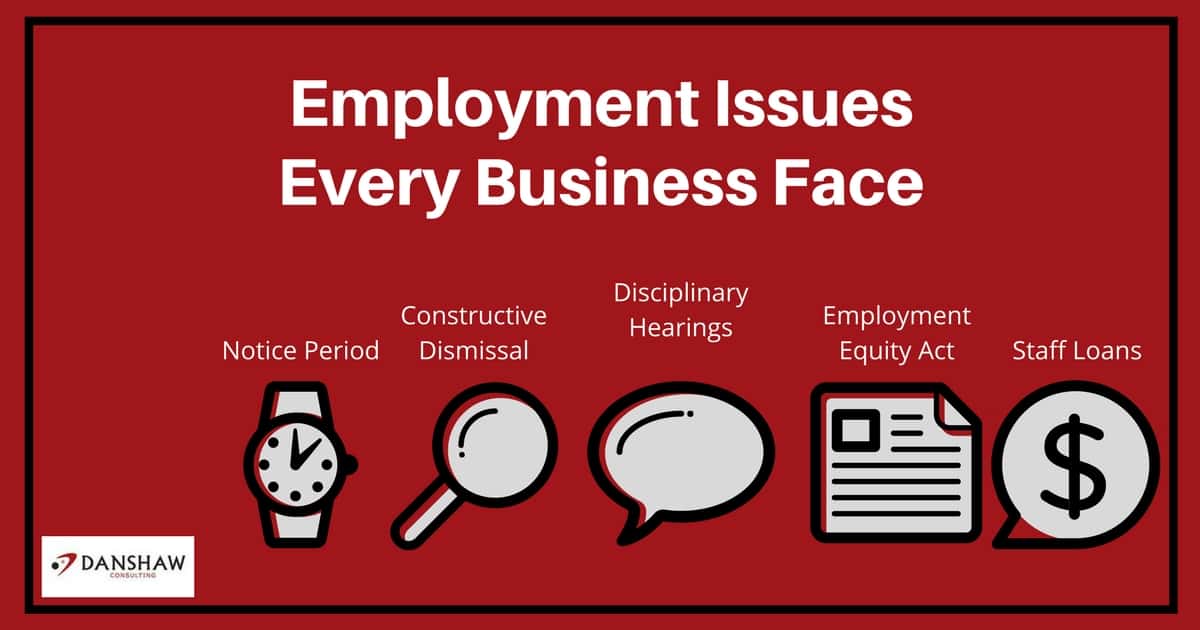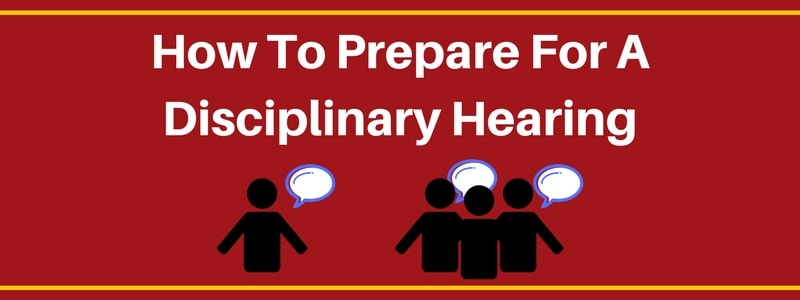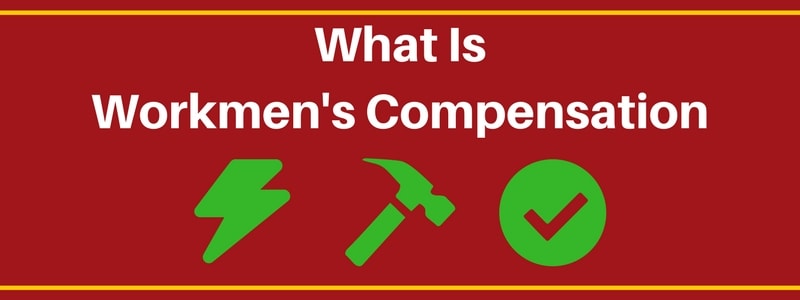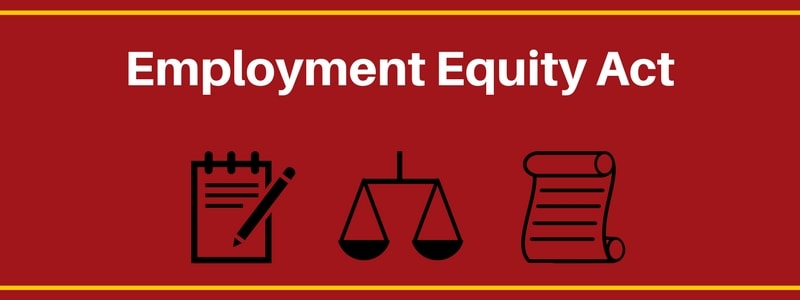6 Employment Issues Every Business Face
6 Employment Issues Every Business Face
Whether you’re the employer or the employee, you’ve got to have your bases covered – know your rights, know your responsibilities and make sure you’re always acting accordingly within your employment environment.
In this post we hope to educate you on all things employment related; from managing notice periods and giving notice, to staff loans, how to handle a disciplinary hearing, workmen’s compensation issues, constructive dismissal issues, the Employment Equity Act and more!
If you have questions regarding employment, you’ve come to the right place!
Are you a Small Business, Company or Large Organization looking for Consulting on Employment Issues you may face?
Danshaw can help! Contact us for more information.
Contents
– Notice Period –
– Staff Loans –
– Disciplinary Hearing –
– Workmen’s Compensation –
– Constructive Dismissal –
– Employment Equity Act –
(Click to go to section)

1. What’s up with a “Notice Period”?
When Is Notice Applicable?
Both employers and employees are obligated to give notice in the event that either party would like to terminate the employment relationship or contract.
The time between registering the intent to terminate the relationship, and the date upon which the contract is terminated, is known as the notice period.
Notice must be given in writing by the party terminating the employment relationship.
Contracts may be terminated as the result of, for example:
-
- Dismissal
-
- Operational requirements of the employer
-
- Mutual agreement between the parties
-
- Reaching the retirement age of the company or industry
- Resignation
Except in cases of summary dismissal, the employee or employer will have to provide written notice of intent to terminate the employment contract.
Illiterate employees may however be given notice verbally in addition to being issued a formal written notice of intent.

HOW MUCH NOTICE SHOULD BE GIVEN?
The most frequently asked question is usually, how much notice should be given?
The answer to this will depend on:
-
- Whether a contract of employment exists
-
- The industry
- The duration of the employment relationship
An employment contract may require a notice period longer than what is prescribed by legislation, it can however not be required of an employee to provide longer notice than an employer.
Where no contract of employment exists between the parties and the employee has been employed for twenty-four hours or longer, the legislation relevant to the industry the company belongs to would apply.
According to the Basic Conditions of Employment Act (BCEA), notice should be given to the other party as follows:
-
- One week notice should be given if the employee has been employed for less than six months
-
- Two weeks’ notice should be given if the employee has been employed for longer than six months, but less than 12 months
- Four weeks’ notice should be given if the employee has been employed for longer than 12 months
As per Sectoral Determination 7 of the BCEA for Domestic workers and Sectoral Determination 13 for Farm workers, notice will be as follows:
-
- One week notice should be given if the employee has been employed for six months or less
- Four weeks’ notice should be given if the employee has been employed for longer than six months
Apart from the notice periods as prescribed by the BCEA and its Sectoral Determinations, different Bargaining Councils may also prescribe notice periods through their own respective Main Agreements which may vary from other industries.
CAN AN EMPLOYEE TAKE ANNUAL LEAVE DURING A NOTICE PERIOD?
Annual leave cannot coincide with the notice period of an employee, nor may notice be given during leave.
Employees would, for example, not be allowed to resign and then take outstanding leave during their notice period.
The rationale for a notice period is to provide the employer the time to ensure that a handover of duties goes smoothly, and that outstanding work is completed by the employee before a new employee takes over.
Therefore, it is crucial for the employee to attend work during the notice period. Outstanding leave should be paid out to the employee upon termination of employment.
Thus, the employer cannot force the employee to take outstanding leave during his/her period of notice in an attempt to avoid paying statutory money.

WHAT IF EMPLOYEES RESIGN WITH IMMEDIATE EFFECT?
Also known as 24-hour notice, when employees resign without providing any notice to the employer, or do not work the full term of notice, resignation with immediate effect rarely occurs and can be regarded as a breach of contract.
This leaves the employer with a number of issues, including operational problems due to improper hand-over and the challenge of finding a suitable candidate to fill the vacancy as soon as possible, which may result in the company suffering financial and other damages.
The Basic Conditions of Employment Act does not provide employers with any relief in such cases.
Without a clear written agreement between the parties, employers are left with the courts as a route to seek relief regarding damages.
The cost implication of taking the matter to the courts and the chances of success with such a claim are usually the biggest deterrent for employers.
Success will depend on the employer’s ability to prove that they have suffered damages due to the employee not providing sufficient notice and such damages need to be quantified by the employer.
Ensure your company’s employment contracts clearly stipulate the agreement surrounding termination of employment or contact Danshaw to assist you in drafting lawful and sound contracts.
You’ll also want to make sure that you sign lawful and sound contracts with your staff should you ever offer a member of staff a staff loan.
Are you a Small Business, Company or Large Organization looking for Consulting on Employment Issues you may face?
Danshaw can help! Contact us for more information.

2. Staff Loans
The pressure to meet sometimes seemingly insurmountable financial obligations is universally understood, and felt. Sometimes it can become difficult just to make ends meet.
In lending a helping hand, many employers choose to give loans to employees to assist them in keeping their heads above water.
The idea is that it is the employer’s prerogative to help a dedicated, loyal employee out during a rough patch, by offering a loan that the employee will then pay back to the company; often by having an automatic deduction from their paycheck for x-amount of months going forward.
However, despite a loan being a noble gesture from the company, failing to keep proper record of loans may have a dire impact on the company, its cash flow, and its financial capabilities.
Loans, whether properly administered or not, become, in essence, a social responsibility to the company.
Many employees would rather opt for the company loan, with its no or minimal interest, as opposed to borrowing money from a bank.
Often the odd loan here and there truly does assist employees in a financial predicament, however occasionally the company unknowingly acts as an enabler to employees with growing debt.
In situations such as these, for example where employees take out company loans to pay off other debt, consideration should be given as to whether you are truly assisting the employee or prolonging financial stress.
It is within your rights as administrator of the loan to inquire as to how the loan amount shall be spent.
Recommendations
To avoid employees falling deeper into a debt trap, here are some recommendations for effectively managing staff loans.
-
- Conduct an affordability assessment – Will the employee be able to pay back the loan within a certain period? Are there any other company loans that the employee has already received? Have previous loans been repaid by the employee?
-
- Should the employee resign, or be dismissed, will the outstanding amount be recoverable? Can the amount of the staff loan be covered by the value of leave owing, a company pension fund, or by the salary/wages that the employee has accrued up to the date the loan is taken/requested?
- Make sure that the necessary paperwork is in place. Have a standard staff loan agreement on file and amend it accordingly every time an employee applies for a loan. Make sure that the contract stipulates: that money is being borrowed, what the instalment amount is, over what period the loan will be paid, percentage interest payable on the loan and what will be used as guarantee for the loan should the employee default on the repayment.
Make sure to build a clause into the loan agreement that authorises the employer to deduct the full outstanding balance of the loan from any final payment made to the employee should their employment be terminated.
Another good policy to implement is that staff loans should be coupled with some kind of incentive strategy.
For example the employee is only entitled to apply for a staff loan should they have a good track record at work; for example a good attendance record (no absent days), clean disciplinary record, and good work performance.

Legal Implications
In addition, here are some legal implications to keep in mind:
-
- The employer is not allowed to deduct more than 25% in total off the employee’s salary/wages in any month.
-
- The South African Revenue Service prescribes that any staff loan amount exceeding R3000.00 should be charged at the official interest rate, and/or if not charged at the official interest rate, the employee should be taxed on the fringe benefit of the staff loan.
-
- If an employee is charged at a reduced interest rate, they must be taxed on the benefit of the difference between the official interest rate, and the interest rate charged by the company.
-
- The National Credit Regulator of South Africa prescribes that any Company/Employer/Body that charges interest on a loan, has more than 100 loan agreements with staff, or more than R500 000.00 outstanding credit agreements should register as a credit provider with the NCR.
- It is the employer’s responsibility to make sure that an employee is correctly taxed on the benefit of a low or no interest loans.
No- taxable value is placed on loans that meet the following criteria:
-
- Occasional or Casual Loan – an occasional loan up to a maximum of R3 000 per annum, at low or no interest
-
- A loan for the purpose of enabling the employee to further his own studies
-
- If a financial institution such as a bank provides loans to its employees at the same rate as to the customers of the institution on the same conditions and under the same circumstances
- A loan provided to a director of a company or to a member of a close corporation, where the loan is for the directors share holding
At Danshaw, we are able to provide sound guidance and advice on remuneration matters to ensure minimal financial risk in relation to companies’ salary bill and ensure the necessary legal compliance.
From day-to-day remuneration queries to full payroll processing, our payroll consultants offer expert advice regardless of company size or industry.
So, what can you do if one of your employees is defaulting on his or her loan, or isn’t meeting his or her job requirements?
You can always schedule a Disciplinary Hearing.
Here’s what you as employee may need to know if you’ve been called in front of disciplinary committee.

3. Disciplinary Hearings – How to Prepare
Maybe you know why you’ve been called in, maybe you’re unsure.
Sometimes you’re called into a disciplinary hearing for something obvious, like having photocopied your bare backside at the Christmas party, and sometimes your employer has less obvious motivations for calling you in.
Herewith follows a series of questions you should ask yourself in preparation for your disciplinary hearing:
HAS YOUR EMPLOYER FOLLOWED STANDARD DISCIPLINARY PROCEDURE?
If your employer has not followed the standard disciplinary procedures you are under no obligation to oblige him/her by attending a disciplinary hearing – inform your employer of the discrepancy and your intention to boycott the meeting as a result.

DO YOU KNOW WHY A DISCIPLINARY HEARING HAS BEEN CALLED FOR?
There are 3 major reasons your employer can call you in:
- Calling you in based on your conduct means you have done something wrong or failed to something you ought to have done.
- A meeting with you in regards to your capability or performance means you have failed to complete your job satisfactorily.
- Calling you in as the result of an extended absence (for example extended sick leave).
ARE YOU FAMILIAR WITH THE DETAILS OF THE CHARGES THAT HAVE BEEN BROUGHT AGAINST YOU?
If you were called in as the result of a conduct infraction, for example, have you seen the evidence your employer has against you?
It is fully within your rights to request to view this evidence prior to your disciplinary hearing.
If your capability or job performance is being called into question: have you received the proper training in order to complete the job your employer is expecting you to complete?
Does the task fall within your realm of duties (i.e. is completing the task in your job description)?
If your disciplinary hearing has been called following an extended absence:
- Is your employer attempting to use your illness as grounds for a wrongful termination?
- Do you have documentation stating your projected date of return?
- Have you been left disabled following an accident?
- If so, are you aware of the concessions your employer is legally obligated to make for you?
TRADE UNION OR A WORK FRIEND Representative?
Your employer does not have the power to refuse you your right to bring along a trade union rep or colleague.
That being said, you only have the right to bring along your union rep or a co-worker, nobody else.
With special permission from your employer you may be allowed to bring in a family member or lawyer.
HAVE YOU PREPARED A SHORT STATEMENT?
Knowing whether or not you are going to refute the charges that have been brought against you beforehand, and writing a brief statement, will help you present your case clearly once you get into the high-pressure meeting scenario.
The responsibility to provide employees with a fair hearing in front of a disciplinary committee is not the employer’s only responsibility to his or her employees.
An employer also needs to ensure that the company is in compliance with all workmen’s compensation related legislation.

4. Workmen’s Compensation – What is it and How to deal with it?
Workmen’s Compensation refers to a fund established by the South African Government to compensate employees for injuries or disease suffered on the job/as a direct result of the work being done.
All employers are bound by law to register with the Compensation Fund.
Their registration with the fund allows their employees to claim from the fund should they suffer occupational injuries or illness.
There are one or two exceptions but the vast majority of registered employers pay an annual assessment fee in order to remain registered with the Compensation Fund.
WHO MUST REGISTER?
The employer is responsible for registering himself/his business so that his employee(s) can claim workmen’s compensation in the event of a work-related injury or disease.
It is the legal obligation of every employer who employees even a single employee to register with the Compensation Fund and pay the annual assessment fee.
If your employer is not making their legally mandated contribution to the fund they are putting themselves and yourself at great risk.
WHY REGISTER?
Not only is an employer legally obligated to register with the Compensation Fund, but employers who are registered are automatically protected from being sued in their private capacity by employees who suffer injuries at work.
Employees are then also protected from loss of income should they get injured on the job or be left incapable of continuing to perform the job due to disability or disfigurement.
South Africa law and legislation has become incredibly strict in this regard and it is a serious offence for an employer not to protect the safety and financial interests of their employees by registering with the appropriate authorities.
WHO MAY CLAIM FROM THE WORKMEN’S COMPENSATION FUND?
The Compensation for Occupational Injuries and Diseases Act applies to:
- All employers (they are obligated to register and pay their dues);
- All casual and/or full-time employees who, as a direct result of an occupational hazard or work-related disease:
- Are left injured, disabled, disfigured, killed; or
- Become ill.
Excluded from coverage by The Compensation for Occupational Injuries and Diseases Act are:
- Workers who are totally or partially disabled for less than 3 days;
- Domestic workers;
- Anyone receiving military training (this includes but is not limited to members of: the South African National Defence Force or the South African Police Service)
- Any worker guilty of wilful misconduct, unless they are seriously disabled or killed;
- Anyone employed outside the RSA for 12 or more continuous months; and
- Workers who are only temporarily employed in the RSA (i.e. those who are more regular employed out of the country).
Are you a Small Business, Company or Large Organization looking for Consulting on Employment Issues you may face?
Danshaw can help! Contact us for more information.
Another question we frequently get here at Danshaw is: “my boss forced me out of the company”, or “I was unfairly dismissed” – “what are my options?”
Allow us to educate you on your rights in the event of constructive dismissal!

5. Constructive Dismissal – Have You Been Unfairly Dismissed?
DEFINING CONSTRUCTIVE DISMISSAL:
Basically, in layman’s terms, constructive dismissal takes place when an employer orchestrates or by any direct or indirect means forces the resignation of an employee.
Whether this means the employer threatened the employee, or simply took steps to ensure that working at the company became unbearable for the employee; an employer is not allowed to in anyway force or coerce an employee to resign.
Constructive dismissal often happens because cheaper labour has become available but the company was unable to terminate the current employee’s contract without penalties.
Forcing the employee to resign may then seem the fiscally prudent way to get rid of the employee.

HOW TO DETERMINE CONSTRUCTIVE DISMISSAL?
“In Pretoria Society for the Care of the Retarded v Loots [1997] 6 BLLR 721 (LAC), the Court referred to Jooste v Transnet Ltd t/a SA Airways (1995) 16 ILJ 629 (LAC), stating that the first test was whether, when resigning, there was no other motive for the resignation.
In other words, the employee would have continued the employment relationship indefinitely.
Which is not the case had it not been for the employer’s unacceptable conduct” – The South African Labour Guide
This however leaves it in the hands of the former employee and their legal counsel to prove that the employer orchestrated the intolerable condition at work.
To further prove that the only way to resolve the intolerable condition was by tendering their resignation.
It is thus not for the employer to prove his innocence, but for the employee to prove the employer’s guilt.
EXCEPTIONS:
Sometimes Determining whether or not constructive dismissal has taken place is not cut and dry.
“For example, a dismissal based on the employer having followed an unfair disciplinary procedure. This resulting in the resignation of the employee, could be a constructive dismissal.
The resignation of an employee in the face of a disciplinary hearing – and resigning in order to avoid the disciplinary hearing – would not necessarily constitute constructive dismissal.
It may well do so if the employee was threatened – “resign, or face a disciplinary hearing where you will be dismissed anyway”.
That sort of thing might justify a dispute of constructive dismissal.” – The South African Labour Guide
At the end of the day, the best way to protect yourself as employer OR as employee is to be familiar with your rights and responsibilities as outlined in the Basic Conditions of Employment Act.
Furthermore, it is advisable to familiarize oneself with the Employment Equity Act, as well as the latest amendments thereto.

6. Employment Equity Act
After investigating the effectiveness of the current Employment Equity Act (EEA), in terms of reaching the goal of achieving equality in the workplace, Government tightened the reigns in order to fast track the process of ensuring equal opportunity and equitable representation in the workplace.
The main purpose of the bill is to amend the EEA to further promote equity and equality in the workplace, to tighten up sanctions and enforcement of the Employment Equity Act by increasing fines, and to align the EEA with other existing labour legislation.
THE AMENDMENTS IN A NUTSHELL:
Amendment of the definition of ‘designated groups’
A revision of the definition of ‘designated groups’ is proposed to ensure that beneficiaries of affirmative action in terms of Chapter III of the EEA are limited to persons who were citizens of South Africa before the democratic era, or would have been entitled to citizenship but for the policies of apartheid, and their descendants.
Employment of persons who are foreign nationals or who have become citizens after April 1994 cannot assist employers to meet their affirmative action targets.

EQUAL PAY FOR WORK OF EQUAL VALUE
Section 6 of the current Employment Equity Act already prohibits unfair discrimination and harassment.
A new sub clause has been added to this section to state that it is also unfair for an employer to differentiate between employees’ remuneration and/or terms of conditions where those employees provide work of the same or similar value.
The principle of equal pay for equal value needs to be demonstrable and where differences exist, these differences are justified, obligating the employer to take measures to eradicate disproportionate income differentials.
The burden of proof will be on the employer to show that where there is a differentiation in employees’ remuneration and/or terms of conditions it is in fact based on fair reasons and objective criteria.
It is therefore important to ensure objective systems are in place to substantiate reasons for unequal pay or different terms and conditions for employees performing the same or similar work.
These systems include:
- Job Analysis and Job Descriptions
- Skills Audits
- Job Grading
- Salary Bands
- Performance Management Systems
PSYCHOMETRIC TESTING
Only psychometric tests that have been certified by the Health Professions Council can be used in assessment tests.
REPORTING, MONITORING AND ENFORCEMENT
Section 21 deals with reporting progress toward achieving the goals of equity and equality in the workplace.
The distinction between employers with 150 employees and less is deleted and substituted with a new clause requiring all designated employers to submit its first report within 12 months of becoming a designated employer.
Thereafter all designated employers must submit a report to Department of Labour once every year, instead of once every alternate year.
Designated employers therefore need to ensure they comply with all requirements regarding the development and implementation of the following:
- Employment Equity committee
- Company specific and demographic analysis
- Employment Equity Plan and Policy
- Employment Equity reporting

TRAINING AND PROMOTION OF DESIGNATED EMPLOYEES
An obligation is also placed on employers in section 42 to take reasonable steps to train and promote suitably qualified people from designated groups.
Employers therefore need to develop HR strategies to fast track the career development of suitably qualified employees from designated groups:
- Develop and Implement succession programmes
- Implement learnerships and/or apprenticeships
- Develop and implement retention strategies

DISPUTE RESOLUTION
Section 10 of the previous Employment Equity Act, dealing with how disputes regarding unfair discrimination can be resolved, has dramatically changed.
Claims of sexual harassment, and/or employees earning below the threshold of section 6(3) of the BCEA can now refer a dispute to Arbitration at the CCMA / relevant Bargaining Council after conciliation.
The previous EEA states that employees can only refer a dispute to the CCMA if the matter was not resolved during conciliation – a very expensive exercise.
This amendment will assist lower income employees in having their disputes resolved in a cost effective manner and therefore it will be easier for these employees to claim unfair discrimination.
Section 11 of the previous EEA, dealing with the burden of proof, is substituted with a new clause stating that, during a dispute, the employee only has to make out a prima facie case of unfair discrimination.
It will then be up to the employer to prove that no discrimination took place or if discrimination did take place that it was not on one of the prohibited grounds considered as automatically unfair discrimination.
Employers must therefore ensure that they do things right from the word go to avoid unnecessary costs and time wasted fighting disputes at the CCMA:
- Recruitment policies and procedures must be finalized to ensure consistency throughout the whole process
- Proper record keeping must be done during the recruitment and selection process to ensure the reasons for selecting a specific applicant can be substantiated
SANCTIONS
The sanctions in the bill have been simplified in the sense that it is now easier for the Director General to impose sanctions on the employer for not following the EEA.
Fines have been substantially increased and contravention of various sections of the Employment Equity Act will attract fines of between 2 -10% of turnover.
Labour inspectors can now immediately issue a compliance order if the employer failed or refused to consult, conduct an analysis, publish a summary of its report, assign responsibility to a senior manager, inform its employees of the EEA, maintain records and prepare and implement an EE Plan.
The employer must comply with the compliance order and inform the inspector thereof, or if it cannot, offer the reasons for non compliance.
If the employer does not comply then the Director General may amend the order or apply to the Labour Court to make the compliance order an order of the court.
Employers are therefore strongly advised to take the obligations of the proposed Employment Equity Act into account and to audit and amend their HR practices accordingly.
Failure to comply can result in a hefty fine!
Danshaw Consulting assists employers in adapting to changing legislation while maintaining the core business effectiveness.
Image Source: phillyinjurylawyer.com
Are you a Small Business, Company or Large Organization looking for Consulting on Employment Issues you may face?
Danshaw can help! Contact us for more information.
If you, as employer or employee, have any further questions relating to the issues of employment, please feel free to Contact Us here at Danshaw Consulting and we’ll have one of our qualified consultants assist you in any way we can.










